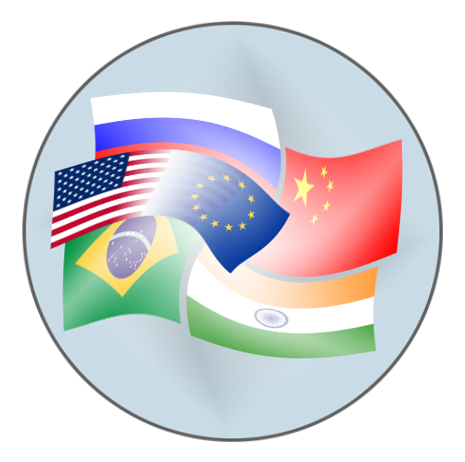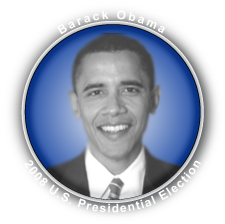Web 3.0 and Social Business—2011 Predictions and Recommendations describes a turning point, away from social media to social business. SocialTech Grows Up—Relationship the Foundation of Business Success—Digital Clodhoppers Become Sore Thumbs.
 2011 will mark a turning point in the adoption of digital social technologies because the experimentation phase is drawing to a close, and stakeholder expectations are increasing. Organizations and people will no longer gain attention by executing badly. At the enterprise level, participation will wane in venues and initiatives that have no business strategy, focus, content strategy and commitment. Paying inexperienced people or agencies to “share” snappy content will expose brands as digital clodhoppers and push customers away. Individuals will also have to improve their game and focus on the most relevant people in their networks. Stop sending default invitations on LinkedIn. Proactively support people whom you respect and trust the most. The theme is determining and executing on strategy, focus and commitment. 2011 will mark a turning point in the adoption of digital social technologies because the experimentation phase is drawing to a close, and stakeholder expectations are increasing. Organizations and people will no longer gain attention by executing badly. At the enterprise level, participation will wane in venues and initiatives that have no business strategy, focus, content strategy and commitment. Paying inexperienced people or agencies to “share” snappy content will expose brands as digital clodhoppers and push customers away. Individuals will also have to improve their game and focus on the most relevant people in their networks. Stop sending default invitations on LinkedIn. Proactively support people whom you respect and trust the most. The theme is determining and executing on strategy, focus and commitment.
In 2011, the bar to attract and hold attention will be higher, which will present organizations with a new threat: when participation falls, some executives will conclude that […]
At first, it seemed that the machine had tilted, its levers, bells and flippers having hit some kind of glitch, causing us to lose the ball and the bonus points.
 As the curtain rises on the second decade of the twenty-first century, we will see that the machine is actually fine, but it’s become a different game. Quite entirely. To put it mildly, “the economy” is proving to be quite a drama, its pungence largely dependent on where your company or career is wired into it. Although it is quite frowned upon in the U.S. to admit despair, some pundits have even flirted with the moniker, “The Great Recession” to describe the crisis, a faint nod to the Great Depression of the 1930s, but this comparison is off-base. As I have argued for some time, the 2007-2010 “financial crisis” has played a mere overture to the real story, a transformation of the global “economic architecture.” I first heard this deft phrase from His Excellency Shri Kamal Nath, India’s very diplomatic Minister of Commerce in 2008 (coverage here). As the curtain rises on the second decade of the twenty-first century, we will see that the machine is actually fine, but it’s become a different game. Quite entirely. To put it mildly, “the economy” is proving to be quite a drama, its pungence largely dependent on where your company or career is wired into it. Although it is quite frowned upon in the U.S. to admit despair, some pundits have even flirted with the moniker, “The Great Recession” to describe the crisis, a faint nod to the Great Depression of the 1930s, but this comparison is off-base. As I have argued for some time, the 2007-2010 “financial crisis” has played a mere overture to the real story, a transformation of the global “economic architecture.” I first heard this deft phrase from His Excellency Shri Kamal Nath, India’s very diplomatic Minister of Commerce in 2008 (coverage here).
[…]
These three examples showed how digitally produced social information could change entrenched human problems like war, excessive punishment and imprisonment and mass death by natural disaster. As such, they serve as examples of widespread change that will occur thanks to social networks and work processes. […]
In the knowledge economy, people are motivated by greater autonomy, mastery, and purpose—not by carrots or sticks.. connectivity is second only to a water pump in its significance to a village.. It will not be enough, as it was back in the early Web, to just leave a website lying around to be found. Business has to become a travelling exhibit, a movable market stall that can be adjusted and placed wherever people are or want to be.. Marketers have begun to view social networks as a significant marketing contact point (and perhaps even more important than traditional channels) for procuring consumer data and knowledge.. people are diving into the Web 2.0 and 3.0 pools before they even know with whom they are swimming.. In 2010 we will see more public agencies taking risks to engage in this sort of “flat” information sharing and insight gathering.. sociology will rapidly become the new economics. […]
2010 Predictions and recommendations for enterprise social networking and Web 2.0: how executives and enterprises can leverage social business to increase competitiveness. Understand how social networks are contributing to the end of the Industrial Economy: the importance of blogs, Twitter, Facebook, LinkedIn, YouTube, MySpace and focusing on relationships. […]
Review and Analysis of the twenty-first century’s first decade, how Web 1.0 and Web 2.0 are disrupting executives, enterprises, society and government.. crowdsourcing, collaboration, innovation, privacy, globalization, terrorism, organizational unbundling, and how to thrive in the Knowledge Economy’s accelerating volatility, which will spell the end of many Industrial Economy enterprises. […]
President Bill Clinton challenged IIT alumni to use their ingenuity in the service to mankind: “Being a good citizen no longer means paying your taxes and depending on your government. We can use innovation to help the less fortunate directly.” His message fell on ready ears and was deeply appreciated by 2,500 graduates of the Indian Institutes of Technology at PanIIT, their annual global conference, which was held in Chicago, Illinois. […]
Volatility, Uncertainly and Opportunity—Move Crisply while Competitors Are in Disarray
 Now that the Year in Review 2008 has summarized key trends, we are in excellent position for 2009 prognostications, so welcome to Part II. As all experienced executives know, risk and reward are inseparable twins, and periods of disruption elevate both, so you will have much more opportunity to produce uncommon value than normal. Now that the Year in Review 2008 has summarized key trends, we are in excellent position for 2009 prognostications, so welcome to Part II. As all experienced executives know, risk and reward are inseparable twins, and periods of disruption elevate both, so you will have much more opportunity to produce uncommon value than normal.
This is a high-stakes year in which we can expect surprises. Web 2.0 and social networks can help because they increase flexibility and adaptiveness. Alas, those who succeed will have to challenge conventional thinking considerably, which is not a trivial exercise in normal times. The volatility that many businesses face will make it more difficult because many of their clients and/or employees will be distracted. It will also make it easier because some of them will perceive that extensive change is afoot, and Web 2.0 will blend in with the cacaphony. Disruption produces unusual changes in markets, and the people that perceive the new patterns and react appropriately emerge as new leaders.
[…]
Editor’s Choice of the Global Human Capital Journal—Accelerating Disruption and Opportunity
 What a year! When I wrote in the 2007 Year in Review that 2008 “would produce an unimaginable degree of change,” I had no idea how right that would prove to be. We saw major disruption in the global economy, and the U.S. presidential campaign closed the year with a major political upset, largely at the hand of social media. That said, I still believe that 2008 will prove to be a transitional year and that more profound change is on the way. What a year! When I wrote in the 2007 Year in Review that 2008 “would produce an unimaginable degree of change,” I had no idea how right that would prove to be. We saw major disruption in the global economy, and the U.S. presidential campaign closed the year with a major political upset, largely at the hand of social media. That said, I still believe that 2008 will prove to be a transitional year and that more profound change is on the way.
Look in any direction. From a macroeconomic perspective, the global economy is showing itself to be pervasively interdependent. The U.S. successfully exported its real estate finance crisis without even working up a sweat. I don’t believe that anyone really knows where all the bodies are buried yet, and central bank chairmen, national presidents and global organization leaders are still holding their breaths, even though they smile bravely on television. Barack Obama’s successful U.S. presidential campaign showed that a new era of politics is upon us; as we’ll discuss below, […]
Cites International Mindset, Judgment and Flexibility—Ambiguity and Global Transformation Form the Backdrop
 The 2008 U.S. presidential election has been the most dramatic in recent history by any measure. Converging economic, cultural and political issues are increasing the level of discomfort among voters and raising the stakes. In endorsing Barack Obama, I have considered the candidates in several dimensions, but my primary perspective has been that of a management consultant. The United States is a client in crisis, and I have asked myself, “What kind of leader does the country need, given the challenges it faces?” Barack Obama is my prescription, although there may be unwelcome side effects. If circumstances were different, I might well have favored John McCain. The 2008 U.S. presidential election has been the most dramatic in recent history by any measure. Converging economic, cultural and political issues are increasing the level of discomfort among voters and raising the stakes. In endorsing Barack Obama, I have considered the candidates in several dimensions, but my primary perspective has been that of a management consultant. The United States is a client in crisis, and I have asked myself, “What kind of leader does the country need, given the challenges it faces?” Barack Obama is my prescription, although there may be unwelcome side effects. If circumstances were different, I might well have favored John McCain.
[…]
|
|
 2011 will mark a turning point in the adoption of digital social technologies because the experimentation phase is drawing to a close, and stakeholder expectations are increasing. Organizations and people will no longer gain attention by executing badly. At the enterprise level, participation will wane in venues and initiatives that have no business strategy, focus, content strategy and commitment. Paying inexperienced people or agencies to “share” snappy content will expose brands as digital clodhoppers and push customers away. Individuals will also have to improve their game and focus on the most relevant people in their networks. Stop sending default invitations on LinkedIn. Proactively support people whom you respect and trust the most. The theme is determining and executing on strategy, focus and commitment.
2011 will mark a turning point in the adoption of digital social technologies because the experimentation phase is drawing to a close, and stakeholder expectations are increasing. Organizations and people will no longer gain attention by executing badly. At the enterprise level, participation will wane in venues and initiatives that have no business strategy, focus, content strategy and commitment. Paying inexperienced people or agencies to “share” snappy content will expose brands as digital clodhoppers and push customers away. Individuals will also have to improve their game and focus on the most relevant people in their networks. Stop sending default invitations on LinkedIn. Proactively support people whom you respect and trust the most. The theme is determining and executing on strategy, focus and commitment.
 As the curtain rises on the second decade of the twenty-first century, we will see that the machine is actually fine, but it’s become a different game. Quite entirely. To put it mildly, “the economy” is proving to be quite a drama, its pungence largely dependent on where your company or career is wired into it. Although it is quite frowned upon in the U.S. to admit despair, some pundits have even flirted with the moniker, “The Great Recession” to describe the crisis, a faint nod to the Great Depression of the 1930s, but this comparison is off-base. As I have argued for some time, the 2007-2010 “financial crisis” has played a mere overture to the real story, a transformation of the global “economic architecture.” I first heard this deft phrase from His Excellency Shri Kamal Nath, India’s very diplomatic Minister of Commerce in 2008 (coverage here).
As the curtain rises on the second decade of the twenty-first century, we will see that the machine is actually fine, but it’s become a different game. Quite entirely. To put it mildly, “the economy” is proving to be quite a drama, its pungence largely dependent on where your company or career is wired into it. Although it is quite frowned upon in the U.S. to admit despair, some pundits have even flirted with the moniker, “The Great Recession” to describe the crisis, a faint nod to the Great Depression of the 1930s, but this comparison is off-base. As I have argued for some time, the 2007-2010 “financial crisis” has played a mere overture to the real story, a transformation of the global “economic architecture.” I first heard this deft phrase from His Excellency Shri Kamal Nath, India’s very diplomatic Minister of Commerce in 2008 (coverage here). Now that the Year in Review 2008 has summarized key trends, we are in excellent position for 2009 prognostications, so welcome to Part II. As all experienced executives know, risk and reward are inseparable twins, and periods of disruption elevate both, so you will have much more opportunity to produce uncommon value than normal.
Now that the Year in Review 2008 has summarized key trends, we are in excellent position for 2009 prognostications, so welcome to Part II. As all experienced executives know, risk and reward are inseparable twins, and periods of disruption elevate both, so you will have much more opportunity to produce uncommon value than normal. What a year! When I wrote in the 2007 Year in Review that 2008 “would produce an unimaginable degree of change,” I had no idea how right that would prove to be. We saw major disruption in the global economy, and the U.S. presidential campaign closed the year with a major political upset, largely at the hand of social media. That said, I still believe that 2008 will prove to be a transitional year and that more profound change is on the way.
What a year! When I wrote in the 2007 Year in Review that 2008 “would produce an unimaginable degree of change,” I had no idea how right that would prove to be. We saw major disruption in the global economy, and the U.S. presidential campaign closed the year with a major political upset, largely at the hand of social media. That said, I still believe that 2008 will prove to be a transitional year and that more profound change is on the way. The 2008 U.S. presidential election has been the most dramatic in recent history by any measure. Converging economic, cultural and political issues are increasing the level of discomfort among voters and raising the stakes. In endorsing Barack Obama, I have considered the candidates in several dimensions, but my primary perspective has been that of a management consultant. The United States is a client in crisis, and I have asked myself, “What kind of leader does the country need, given the challenges it faces?” Barack Obama is my prescription, although there may be unwelcome side effects. If circumstances were different, I might well have favored John McCain.
The 2008 U.S. presidential election has been the most dramatic in recent history by any measure. Converging economic, cultural and political issues are increasing the level of discomfort among voters and raising the stakes. In endorsing Barack Obama, I have considered the candidates in several dimensions, but my primary perspective has been that of a management consultant. The United States is a client in crisis, and I have asked myself, “What kind of leader does the country need, given the challenges it faces?” Barack Obama is my prescription, although there may be unwelcome side effects. If circumstances were different, I might well have favored John McCain.